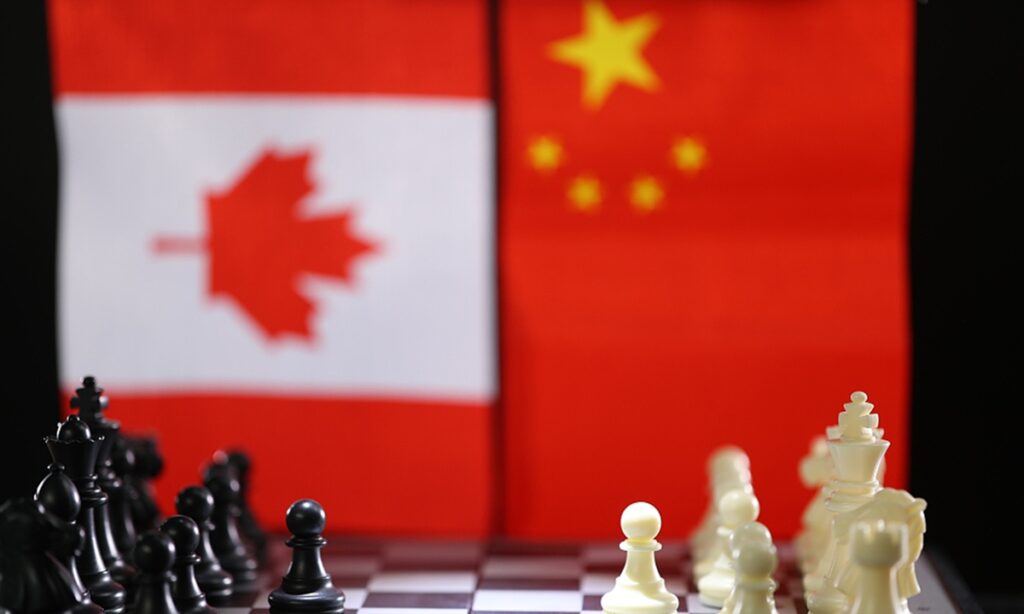Canadian Broadcasting Corporation (CBC) reported on November 6 that Canada will release a “long-delayed” Indo-Pacific strategy report. According to CBC, it’s no accident that Canadian ministers have been travelling to Washington lately to talk about trading more with allies or even decoupling from China. Although the details of the report are not yet clear, CBC has suggested that the strategy as a whole is to “look to Washington” and that Ottawa’s views on China are particularly similar to those espoused by US Secretary of State Antony Blinken. If so, it is disappointing and regrettable.
The delay in the release of the strategy report is said to be due in large part to “intense internal debate.” A source told Canadian media that after the Meng Wanzhou incident, Justin Trudeau had hoped to make effort to repair relations with Beijing and suppress the idea and practice of decoupling from China’s economy and trade. Ottawa has shown a tangled and complicated mindset for some time as to whether to put the China strategy into the new Indo-Pacific strategy, or even let this Indo-Pacific strategy “revolve around China” and push Canada to the forefront of US efforts to suppress China.
Washington has shown clear impatience and dissatisfaction with Canada’s “silence on the Indo-Pacific strategy.” David Cohen, the US ambassador to Canada, said that everyone is waiting for Canada to release its framework for its overall China policy. The American magazine “National Interest” criticized Canada, a “disappointingly meek US ally,” for taking a “neutralist strategy” on China. Under the influence of Washington, some Canadian politicians advocated that if allies “lost the confidence,” Canada may become a “second-class citizen” in the Five Eyes. Recently, Canada’s increasingly negative moves toward China are obviously related to Washington’s pressure.
But as an independent sovereign country, Canada should have its own choices. Policymakers in Ottawa should be startled if they scrutinize the recent exclusive revelations from The Wall Street Journal and reflect on it from another angle. The radical politician in Washington, John Bolton, almost single-handedly instigated a violent storm between China and Canada, the impact of which continues to this day. A foreign politician’s subjective malice toward China turned into Canada’s malicious actions toward China unimpededly. Canada has become an American tool that has lost its self-will, and it has also tasted the taste of “sandwich biscuits.”
How did such absurdity come about? Shouldn’t this kind of “remote control,” which is unacceptable to any sovereign country, worthy of Canada’s high alert and prompt Canada to adjust and avoid relevant decisions and action mechanisms? However, what people see now is that Canada still “follows Washington’s lead” and takes the initiative to put itself in a cog position in the assembly line of Washington’s suppression of China. Following this trend, Canada will be in a weaker or even humbler position in front of Washington if it walks in this direction. This is not the result that the vast majority of Canadians want to see.
To a certain extent, we understand Canada’s circumstances. As a neighbor of the US, Canada is large but sparsely populated, and is heavily dependent on the US both economically and for security. It can be said that its lifeblood is tightly held in the hands of the US. All along, Washington will not hesitate to pinch Canada when it needs to. But being under pressure from the US is one thing, taking the initiative to cater to the US is another. Canada is not the only country that is coerced by the US in terms of economy and security, but many countries have not voluntarily given up their insistence and pursuit of diplomatic independence. Canada used to strike a balance in the past. It shouldn’t choose to “strategically lie down” just because Washington is piling more pressure on it.
Canada is not the 51st state of the US, and has no obligation and should not be willing to be Washington’s political tool and vassal. It is certain that if Canada follows the US in its foreign strategy, its value as a sovereign state will be severely depreciated. This “devaluation” is actually already happening. Under the instigation of the US, Canada has recently launched a series of unfriendly actions against China, disrupting normal business cooperation between Chinese and Canadian companies in the name of national security. Carrying out self-destructive pan-national security operations in the mutually beneficial economic and trade field will not only harm Canada’s economy but will also further damage Canada’s national reputation.
For quite a long time, Canada has played a relatively mild role in international politics. The strategic posturing of keeping a distance from geopolitics and supporting free trade and multilateralism can best reflect Canada’s values and safeguard its interests. Once detached from it, Canada will encounter risks and pay a price. We hope Canada can walk away from the shadows of Washington’s politicians and make foreign policy based on its own interests. Such strategic policy documents can truly be viewed as “strategic” and welcomed by the international community.
(Global Times)




